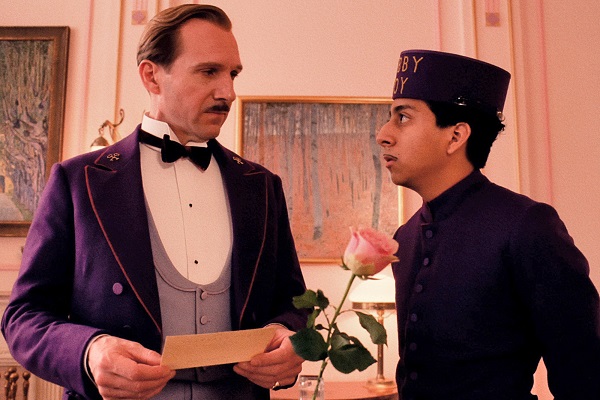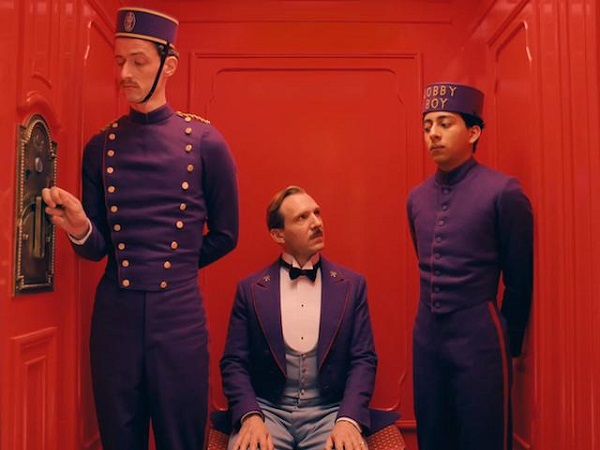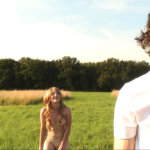Grand Budapest Hotel (d. Wes Anderson USA/Germany 2014)
Grand Budapest Hotel (d. Wes Anderson USA/Germany 2014)
Please read ‘On Reviews‘ for a guide to how I write film reviews. Any spoilers are appropriately marked and, though I personally prefer to know little about a film before seeing it, there is a synopsis at the bottom for any who wish to see one.
In recent Cinema Wes Anderson has become a bit of an Icon. Rushmore (d. Anderson USA 1998) sky-rocketed him to fame and he has further established himself with films like The Royal Tenenbaums (d. Anderson USA 2001) and The Life Aquatic with Steve Zissou (d. Anderson USA 2004). Spearheading a contemporary ‘tendency‘ in film, that’s also a quality in films such as Submarine (d. Richard Ayoade UK/USA 2010), Napoleon Dynamite (d. Jared Hess USA 2004) and Little Miss Sunshine (d. Jonathan Dayton, Valerie Faris USA 2006). The success of the Quirky Film has seen a recent prominence of the awkward (often male) lead and has even inspired crossovers into films such as Kick-Ass (d. Matthew Vaughn UK/USA 2010). Defining a Quirky Film isn’t often an easy task, but can often be characterised by social awkwardness with an existential outlook taking form with expressionism and a slightly more ‘intelligent’ approach to drama, comedy and style. (This is a fairly reductionist definition, I admit.) Wes Anderson is a key contributor in this field and his style is characterised by many of these traits. His style includes a love of Colour and patterns, symmetry and frequently has situations of nostalgia and family strife. It would be easy to go in to an essay regarding the tone of Quirky Films and Wes Anderson’s style – examples can be found here. However, Grand Budapest Hotel, his latest film, is of central interest here.
Important to a Wes Anderson film is the film’s cast. Considering his films boast a collection of stars, this matters more than most. Over the years this has built to (with Grand Budapest Hotel) Harvey Keitel, Adrien Brody, Bill Murray, Willem Dafoe, Ralph Fiennes, Jeff Goldblum, Jude Law, Edward Norton, Tilda Swinton amongst the rest of the cast. With such an array of talent its actually difficult for any actor not to give their all. The ways to include each actor is both fun and inventive. Though with an ensemble cast its often difficult not to reduce some parts to bit-parts or cameos. The actors (and Wes Anderson) find ways of making them so much more. Each part is gifted with a way to make them interesting – sometimes to humorous effect! However, is it worth having such talent? Sometimes some of the actors can not escape themselves. Their faces will always be their faces. The central cast work particularly well at delivering characters that are off beat and relatable. If you’re swept up in their stories and the humour of their manners, then the film will entertain you straight to its end.
With any Wes Anderson film the mise-en-scène is particularly important. There is a strong attention in Grand Budapest Hotel to colours and cinematography that often brings Stanley Kubrick‘s The Shining (d. Kubrick USA/UK 1980) to mind. This element of Wes Anderson’s style is both refreshing and visually interesting. These patterns that uses vibrant colours in both characters and props keeps a visual interest that helps the delivery of some of the narrative elements. This is part of Wes Anderson’s distinct style and both adds to his oeuvre and modern cinema as we know it.
In spite of some of its better technical accomplishments the film has moments where characters feel underdone and the narrative itself seems to drag. However, it is refreshing to see that there are films that are still willing to push the boundaries. The whole idea of the Quirky Film seems to be almost developing a new genre in itself and like all genres it’s not always for everyone. In this way, criticisms of this film may be firmly rooted within the Quirky Film debate rather than the film itself. This begs further attention but for now, Grand Budapest Hotel is a refreshing film, new and quite entertaining.
Further Reading
rottentomatoes.com
Interview with Wes Anderson and Ralph Fiennes
Quirky, Tone and Metamodernism
Mise-en-Scene & the Visual Themes of Wes Anderson
The Perfect Symmetry of Wes Anderson’s Films
What You Should Know About Grand Budapest Hotel
Synopsis
Explores the history of the Grand Budapest Hotel and its many characters. In particular focus is how the owner was framed for murder and how he proves his innocence.










Leave a Reply